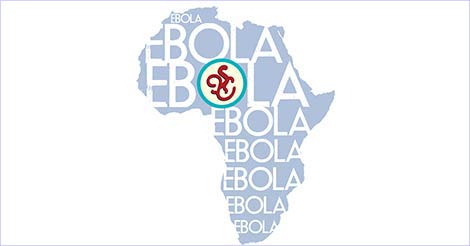Ebola Fever - Symptoms & Prevention
Symptoms & Prevention
Ebola fever also known as Ebola virus infection or Ebola hemorrhagic fever is a rare type of deadly viral infection. Infection from this virus causes fatal bleeding inside and outside the body. The disease kills up to 90% of people who get infected from this virus. Its outbreaks mostly occur in remote villages of Central and West Africa.
As the virus enters the body, it damages the immune system and vital organs leading to a sharp decrease in blood-clotting cells. This results in severe and uncontrollable bleeding.

How Ebola virus gets in?
Ebola is not as contagious as other common viruses like cold, influenza, chicken pox or measles are. It spreads among people when they come in contact with the skin or bodily fluids of an infected animal (like a monkey, chimp or fruit bat). Then it moves ahead in people from person to person the same way.
- People in close contact with sick person suffering from Ebola virus infection may get it.
- By touching contaminated needles or surfaces.
- It does not spread through air, water or food.
Symptoms of Ebola Infection
Initially Ebola infection may feel like normal flu or other similar illnesses. Symptoms begin to show after 2 to 21 days post contraction with the virus and usually include:
- High fever
- Severe headache & stomach pain
- Lack of appetite
- Joint & muscle aches
- Sore throat
- Weakness
As the disease advances and gets serious
- Bleeding inside the body, from the eyes, ears, and nose may begin
- Some people vomit or cough up blood, have bloody loose stool
- Get a rashes on the body
Prevention from Ebola virus
- The best way to avoid catching the disease is by not travelling to areas where the virus is found (Central and West Africa)
- There’s no vaccine at present to prevent Ebola virus
- Healthcare workers should wear masks, gloves and cover eyes with goggles whenever they have to go in contact with people suffering from Ebola
- Isolation of Ebola patients is a must from unprotected persons/caregivers




